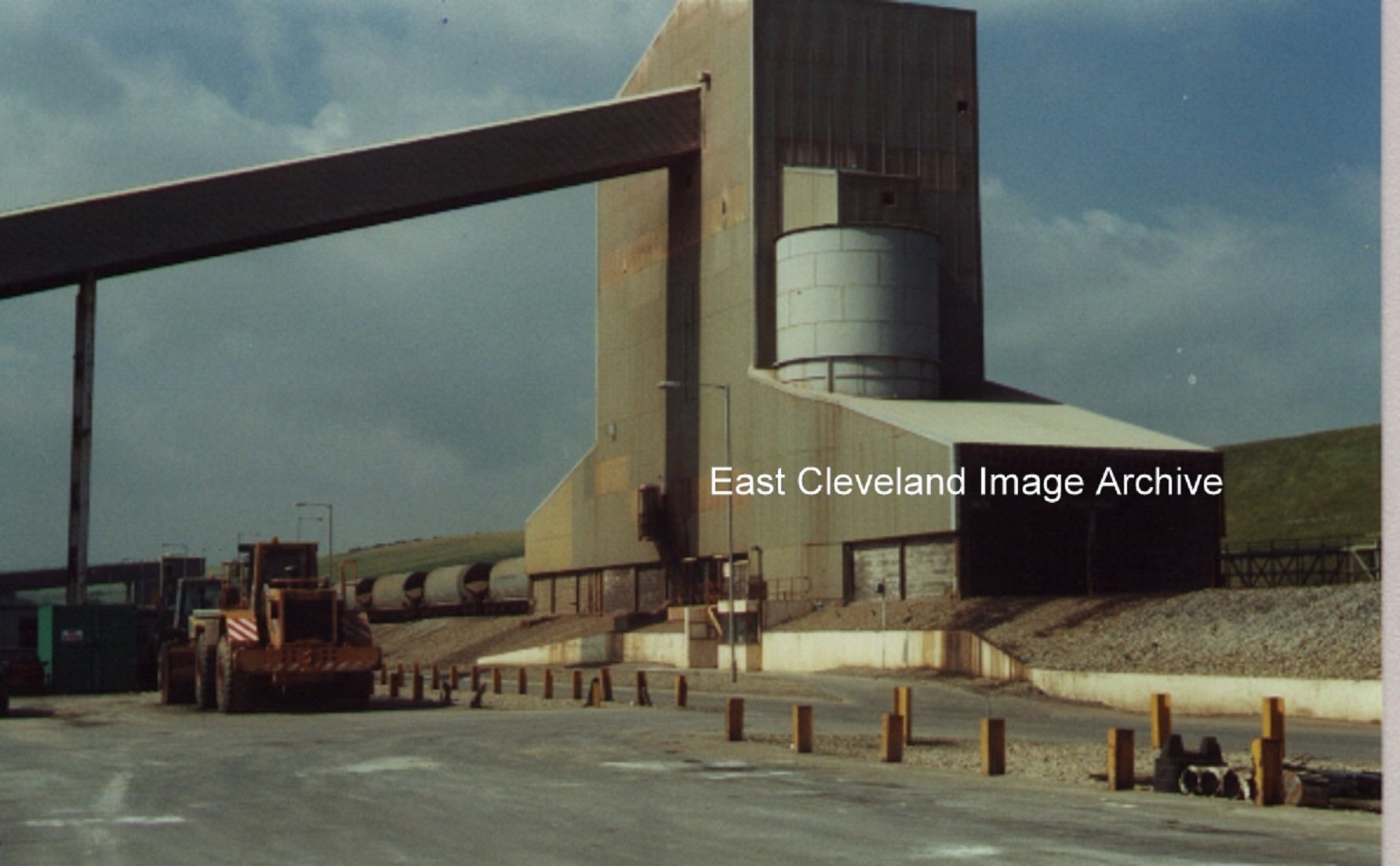
A view of the wagon filler with a train of wagons in the background, this hopper fills the rail wagons with Potash.
Image courtesy of Alan M. Franks.
|
|
||
 A view of the wagon filler with a train of wagons in the background, this hopper fills the rail wagons with Potash. 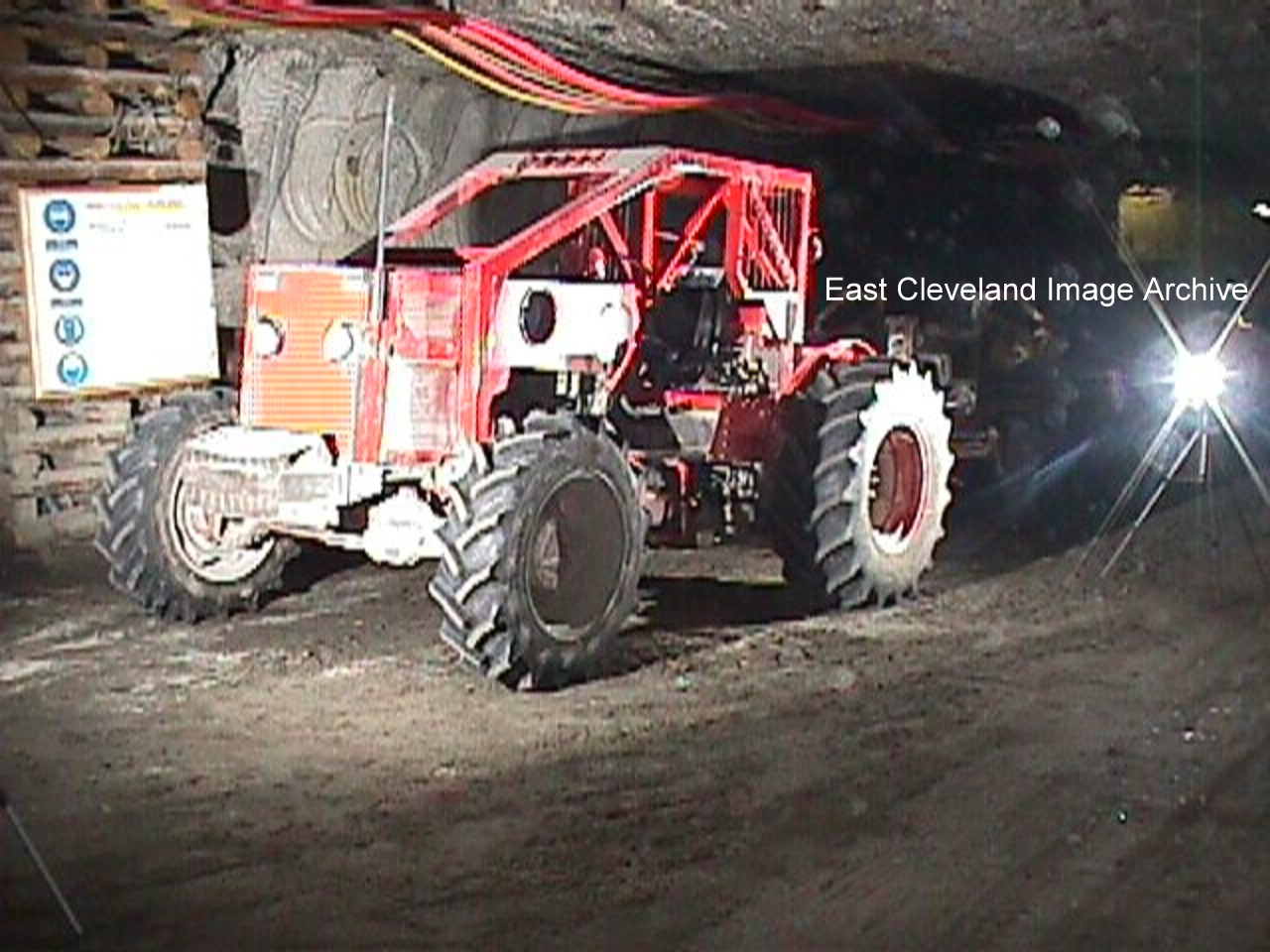 OK you troglodytes, time for another set of images from Boulby Potash. Didn’t know they had a Stock Car track down there! 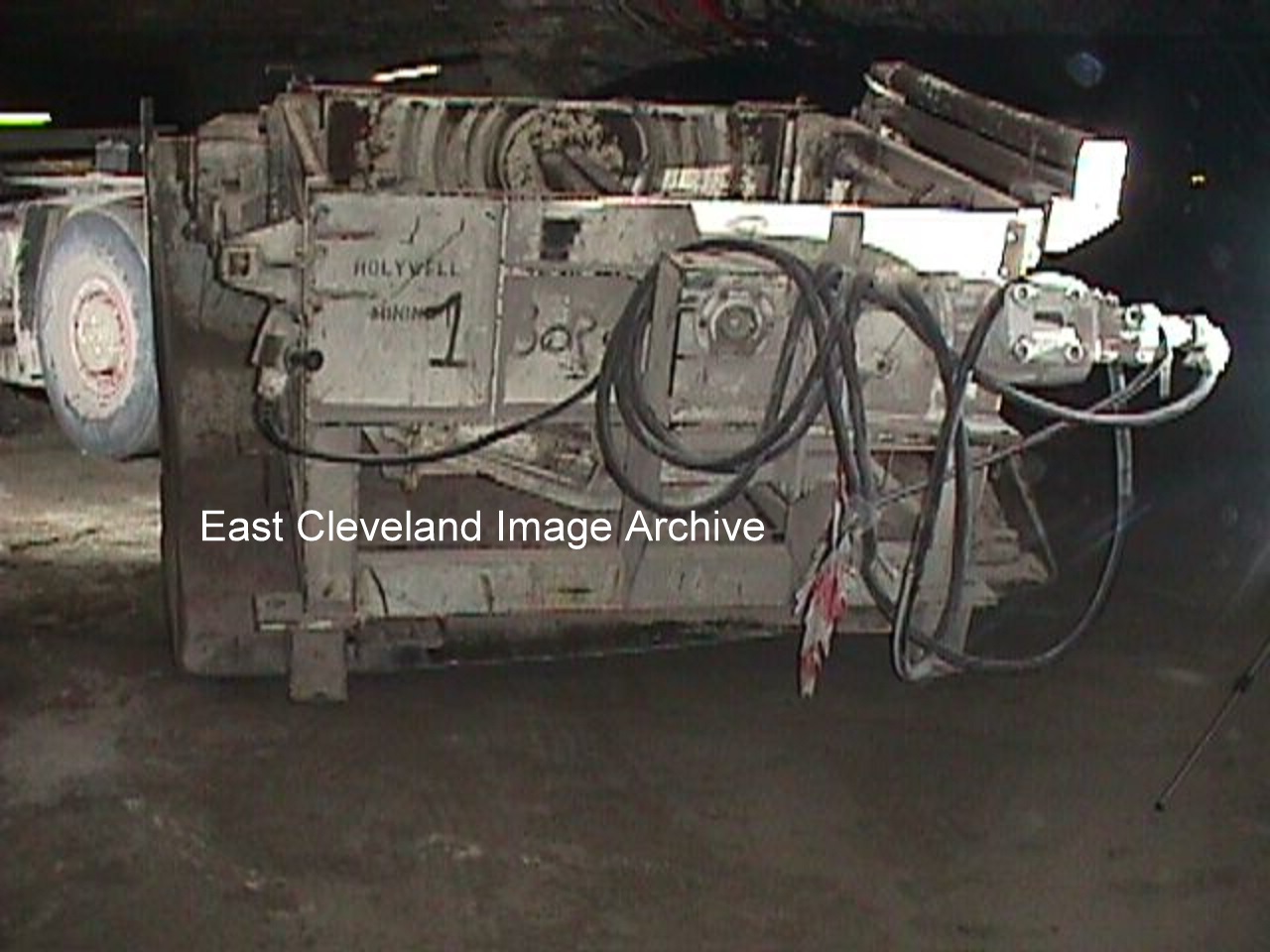 When you want to move a non-mobile object underground get ahead – get a bucket! 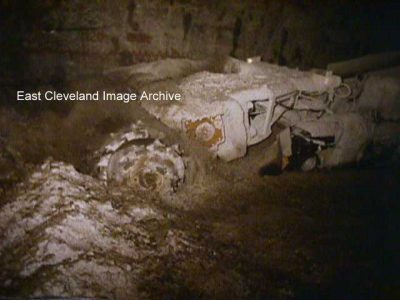 Seeing this image gives me a new respect for the modern breed of miner – this has to be a pretty bad environment to earn a crust in! As Alan says: ”Milling was done after a heading was mined, if there was still a good grade of Potash in the floor or to regain a passable roof height. If the roof had dropped or the floor had heaved; it was easy tonnage as generally no probe drilling or roof bolting to do, as in usual face mining.” The Heliminer has now been identified as a 1060 by N. Readman, who also advised: ”The motors go straight through into the head and it has no prop shaft.” Image and information courtesy of Alan M. Franks, thanks to N. Readman for the identification and update. 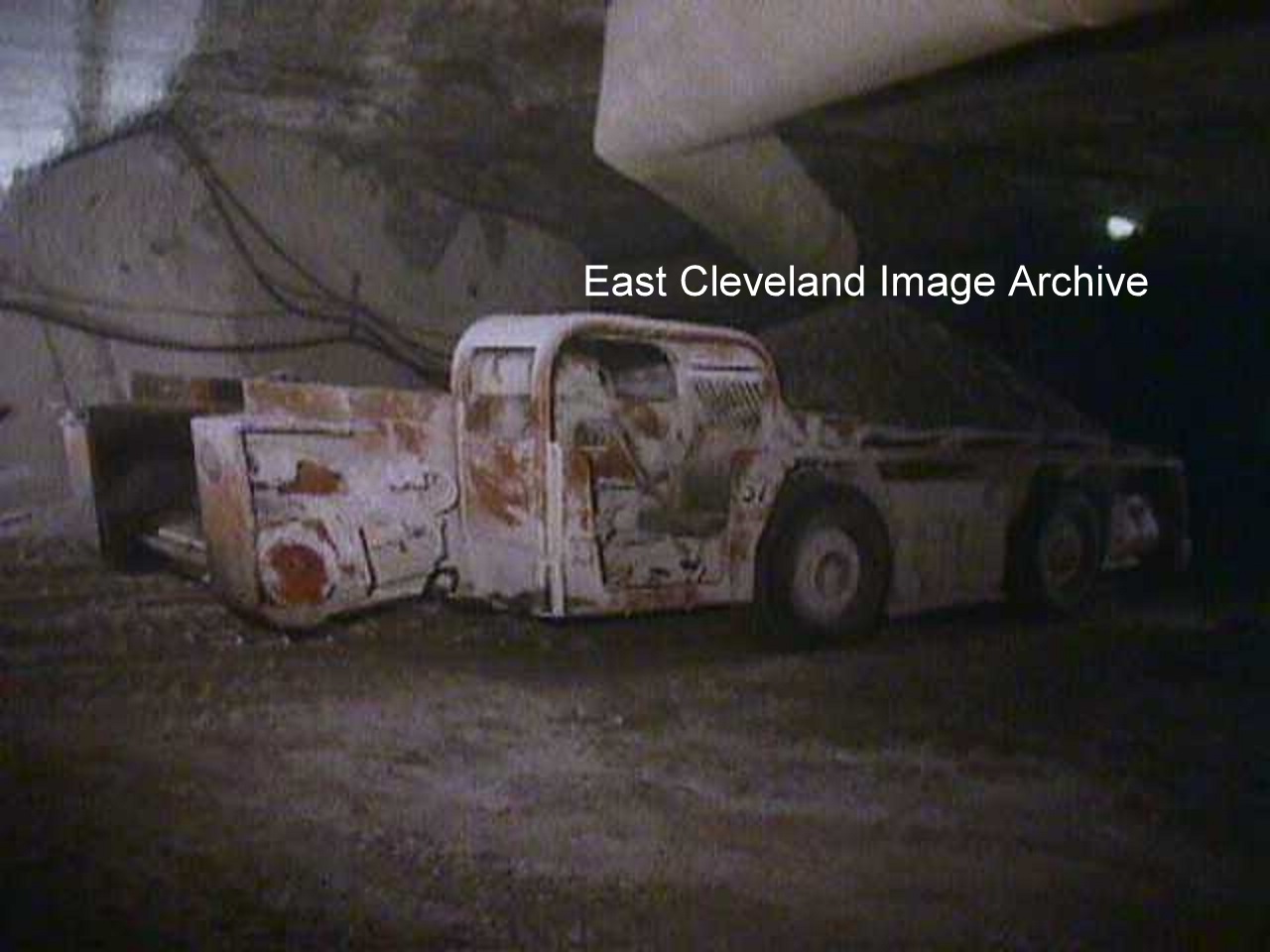 Didn’t say it was pretty down there – I suppose all of the kit gets like this eventually. Notice the overhead airway – vital in a mines environment and more so at this depth! 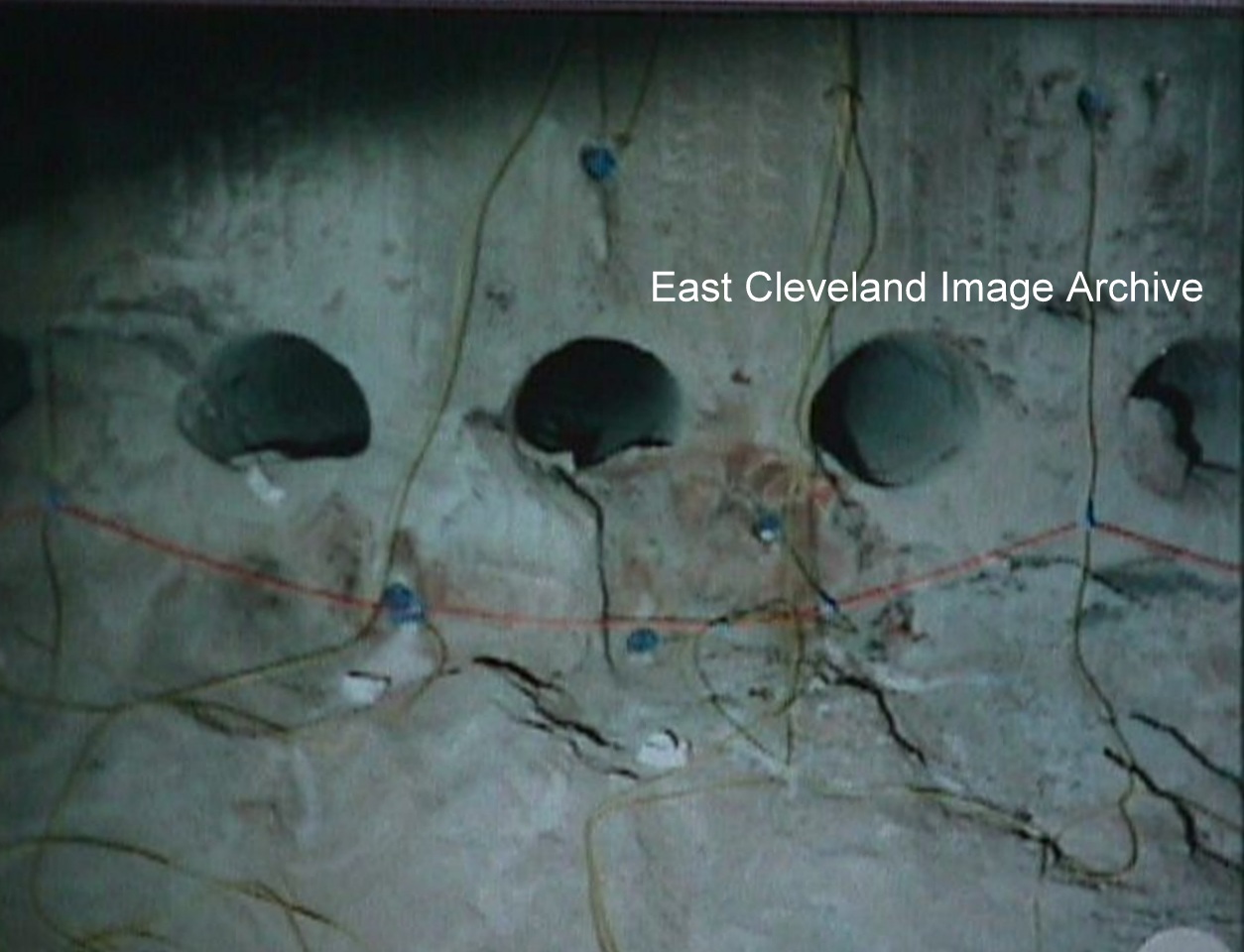 You know those car stickers that say ’If you can read this you are too close’ – the mining equivalent would be ’If you can see this it’s too late!” A set of charged holes ready for firing – now you can see what the augers are used for. 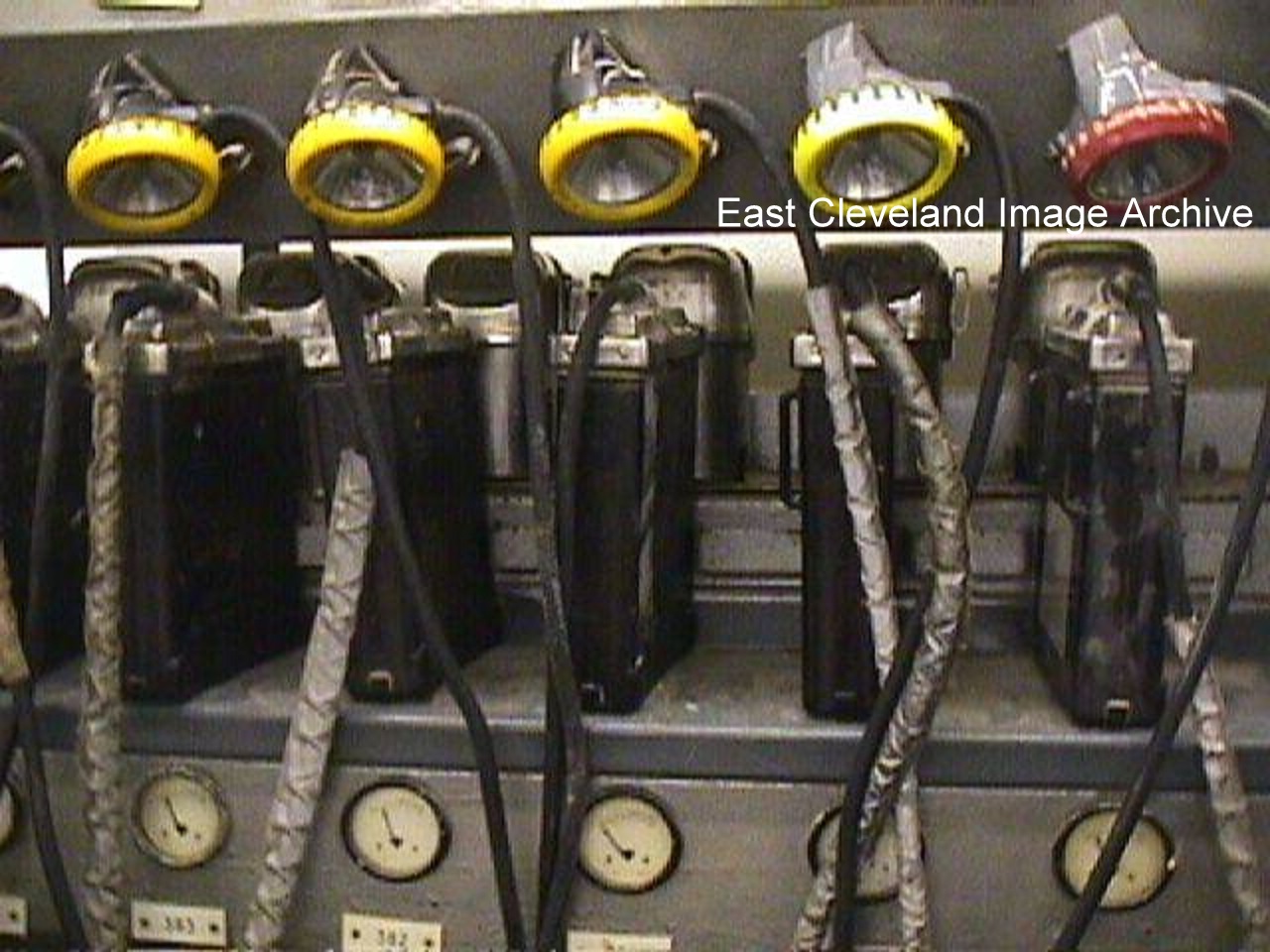 This almost has the look of art – of course without them you can’t see – so a vital piece of utility underground. 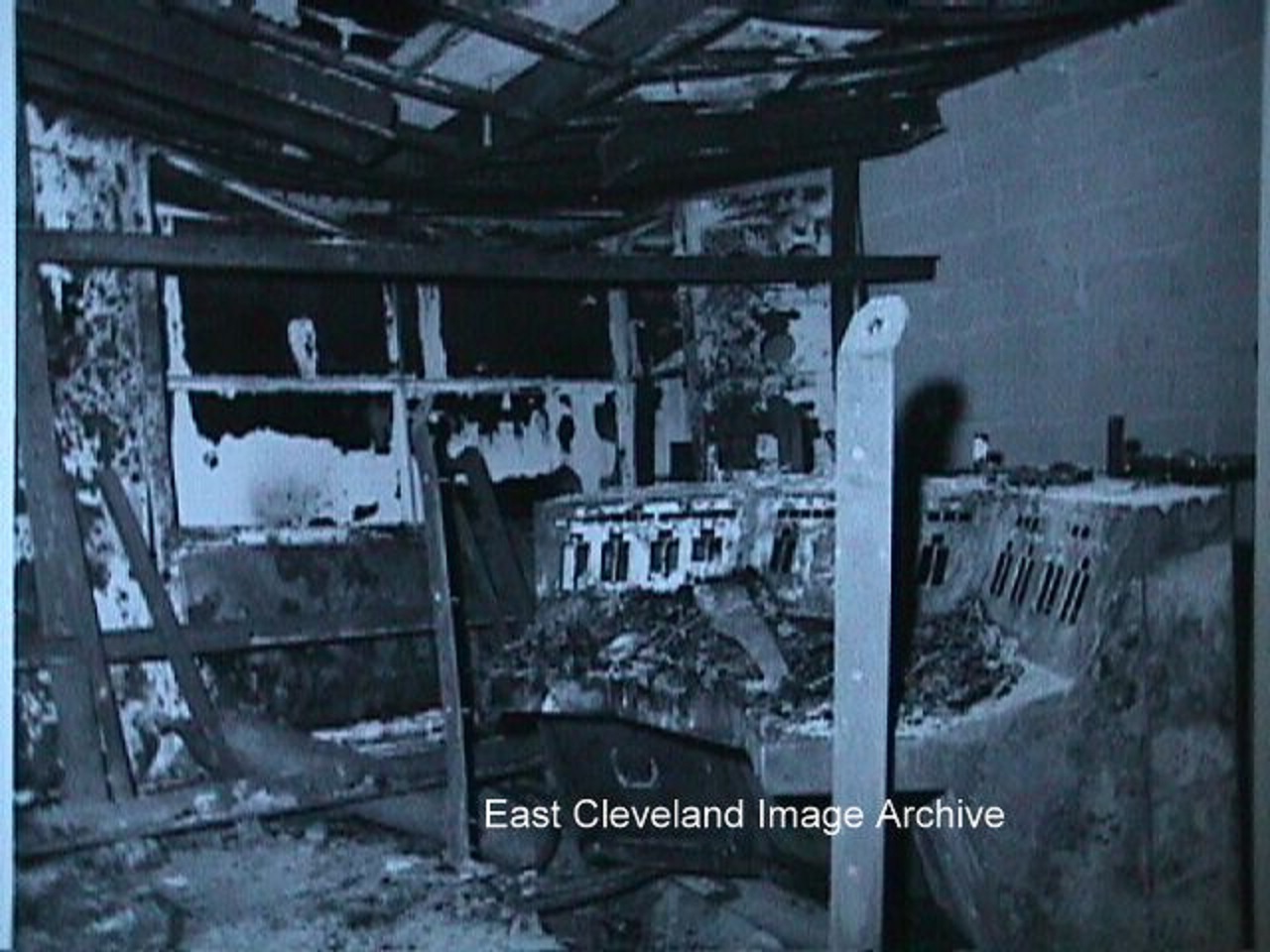 Gutted is the word – to describe the Old Control Room after the fire – glad I wasn’t in here when this lot went up! Ian Benson’s comment on the other post regarding this fire are a reminder of the dangers of fire underground. 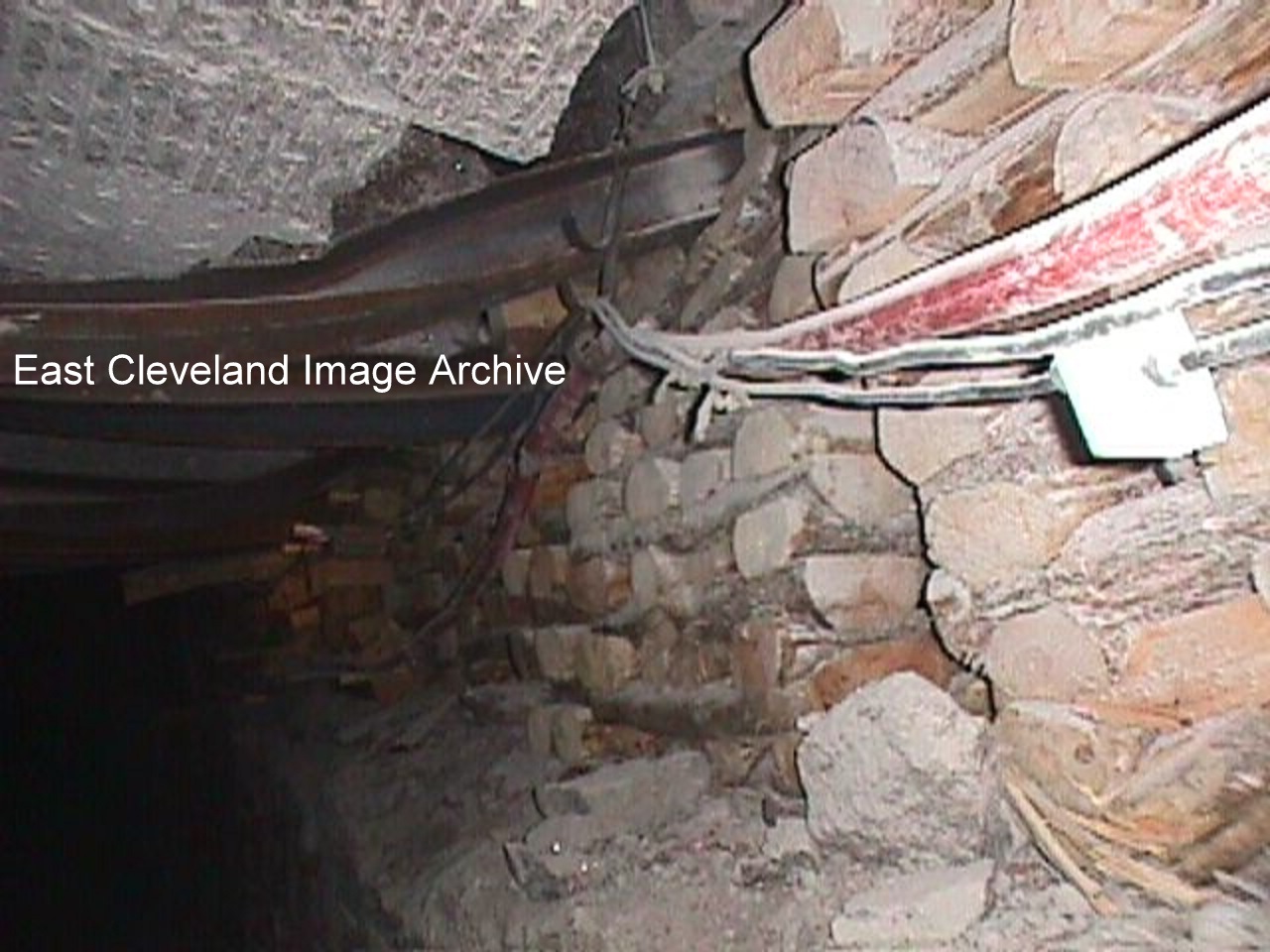 We didn’t know what a convergence was, but judging by the twisted metalwork and the collapsed crush-stack we guess it’s the onset of pressure, or a geological faulting process. Alan says: ”Quite a bit of roof pressure there, if the chocks and steel weren’t there, there would be a big heap of ore on the ground” – and we believe him! 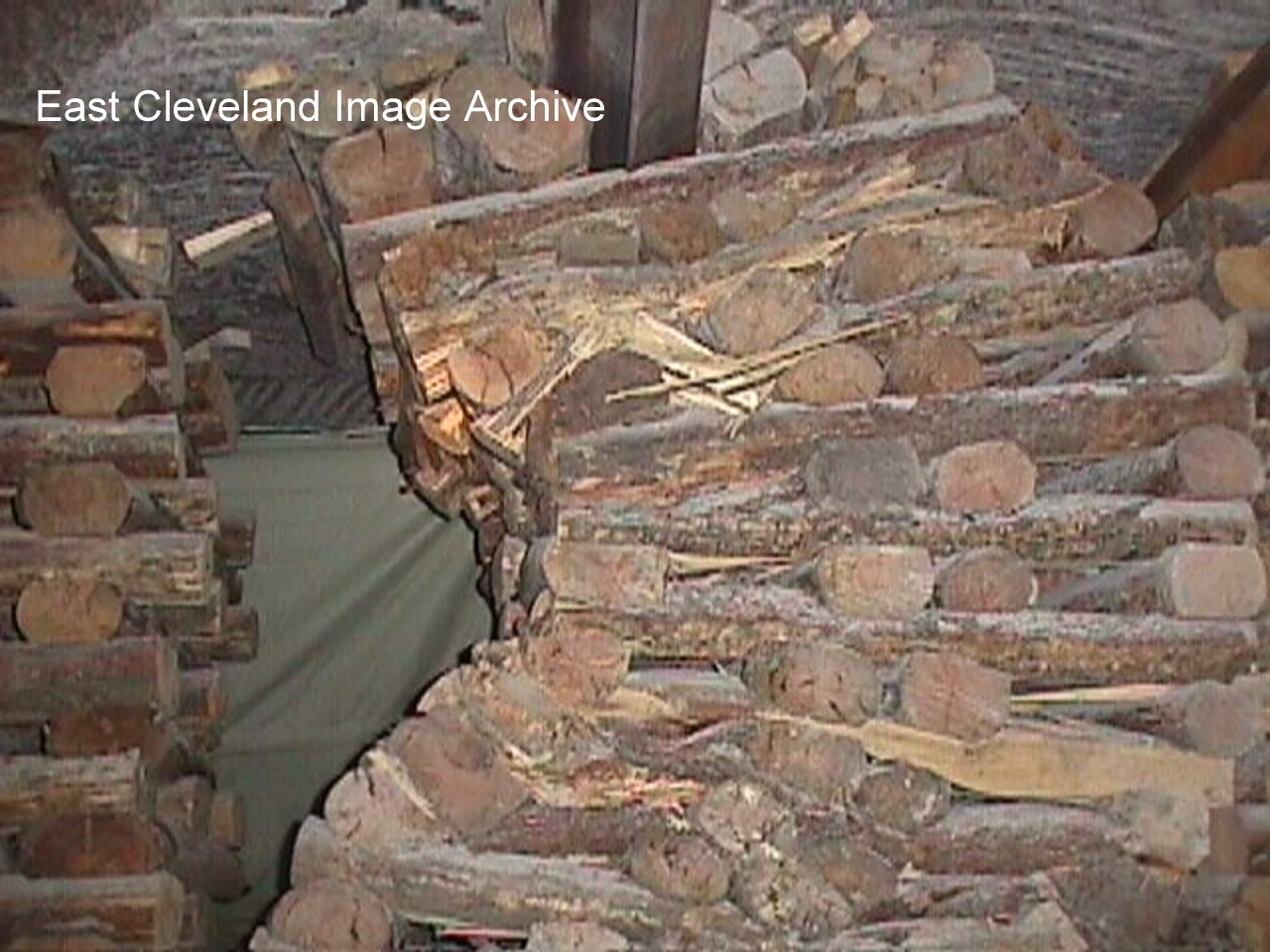 Now you can see why those stacks are like they are, when the pressure comes on they crush – like the taper on a pit prop they give early indication of an impending problem!! |
||
Recent Comments